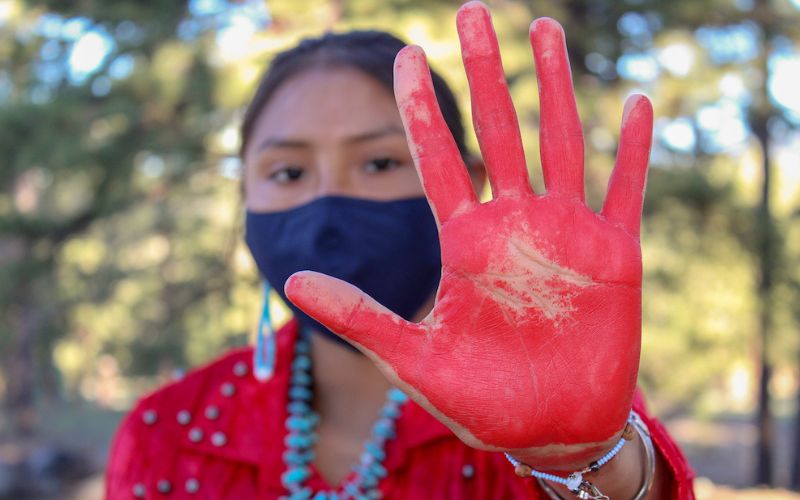
- Details
- By Native News Online Staff
California lawmakers on April 16 unanimously approved a bill to create a pilot program for three tribal nations that will allow them to investigate Missing and Murdered Indigenous Peoples (MMIP) in their communities.
The bill, introduced by Assembly member and tribal citizen James Ramos earlier this year, sets up a pilot program for Blue Lake Rancheria, Yurok tribe, and Coyote Valley Band of Pomo Indians, that allows tribal police officers in California to become peace officers in the state under certain conditions.
Ramos’ bill attempts to fix a decades-old problem created by Public Law 280. In 1953, Congress enacted the law, which transferred public safety responsibility on tribal lands from the federal government to six states—including California—without reimbursing costs. In each of those states, state authority was substituted for federal authority on designated Indian reservations, with few exceptions. On reservations that aren’t subject to the law, crimes committed by non-Natives against tribal members are considered federal offenses and tribal police—with training and funding by the US Department of the Interior— are able to carry out arrests and investigations.
The result has eroded tribal sovereignty, overburdened state law enforcement by passing them additional police responsibility without funding, and has created jurisdictional gaps of sub-standard and culturally inappropriate service to tribal nations, according to speakers at a March 20 roundtable on Ramos’ bill.
“California ranks fifth in the nation for uninvestigated, unresolved MMIP cases,” Ramos said in a statement. “One contributing factor to this epidemic is the confusion over law enforcement jurisdiction caused by a 1953 federal law. We can reduce the number of unsolved cases by clarifying jurisdiction and permitting tribal police to pursue alleged perpetrators with the same authority as state peace officers if they meet California requirements.”
In December 2021, the Yurok Tribe declared an emergency declaration because of the missing and murdered Indigenous peoples crisis.
“It is our firm belief that this bill and pilot program will combat the crisis of MMIP by improving public safety in tribal communities,” Yurok Tribal Chairman Joe James said in a statement. “Thank you to Assemblymember Ramos for his leadership on this important issue, and we look forward to the collaborative efforts with tribal communities to ensure our safety and wellbeing.”
More Stories Like This
Native News Weekly (August 25, 2024): D.C. BriefsUS Presidents in Their Own Words Concerning American Indians
Native News Weekly (January 18, 2025): D.C. Briefs
Federal Judge Orders ICE to Halt Use of Pepper Spray, Arrests of Peaceful Protesters in Twin Cities
Tunica-Biloxi Cultural Leader John D. Barbry Walks On
Help us defend tribal sovereignty.
At Native News Online, our mission is rooted in telling the stories that strengthen sovereignty and uplift Indigenous voices — not just at year’s end, but every single day.
Because of your generosity last year, we were able to keep our reporters on the ground in tribal communities, at national gatherings and in the halls of Congress — covering the issues that matter most to Indian Country: sovereignty, culture, education, health and economic opportunity.
That support sustained us through a tough year in 2025. Now, as we look to the year ahead, we need your help right now to ensure warrior journalism remains strong — reporting that defends tribal sovereignty, amplifies Native truth, and holds power accountable.
 The stakes couldn't be higher. Your support keeps Native voices heard, Native stories told and Native sovereignty defended.
The stakes couldn't be higher. Your support keeps Native voices heard, Native stories told and Native sovereignty defended.
Stand with Warrior Journalism today.
Levi Rickert (Potawatomi), Editor & Publisher


